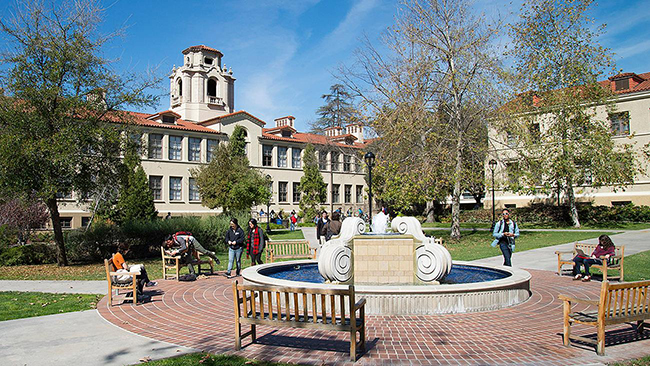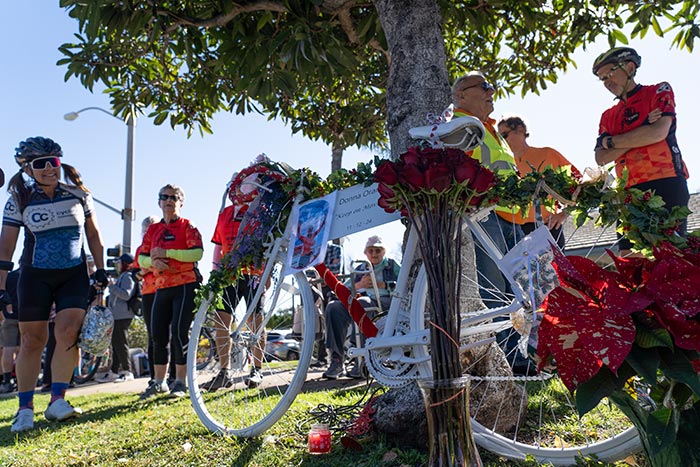Uncommon Good offers organic wares
An uncommon idea has come to fruition, right here in town. Tucked in a corner of the United Methodist Church campus, there is a strange structure with remarkable abilities.
The Whole Earth Building—a solar-powered, earth-cooled structure made from on-site soil—serves as both a store and a showcase of sustainable architecture.
There, Uncommon Good sells produce that is not only organic but also farm-fresh, having been harvested on the nonprofit’s Fiddleneck Farms. One of these is operated on nearly 10,000 square feet of Temple Beth Israel grounds, which?TBI donated for the endeavor. Another farm will be located on Claremont Presbyterian Church land, where ground was broken last month.
Shopping at the Whole Earth Building is an experience in itself. With its arched mud walls and rooftop garden, it looks like something out of J.R.R. Tolkien’s Hobbiton.
The building stands on land where the Tongva Indians once resided, so before beginning construction, Uncommon Good founder Nancy Mintie and crew worked with tribal descendants to ensure the region’s indigenous heritage is properly honored. Native American art is included throughout the building, including wall paintings featuring pictograms modeled after California cave paintings.
The region is also taken into account in the surrounding landscaping, which employs native plants as well as nature-mimicking water-saving mechanisms such as a dry streambed and a bio-swale located on a small portion of the Claremont School of Theology campus.
The lush fruits and vegetables, which are chemical- and pesticide-free, are sold at $1 to $3 per bunch. They are stored in a refrigerated shed painted with child-friendly images—a fairy blowing a flower trumpet and a scarecrow unsuccessfully guarding a field of pumpkins from birds—in a nod to the kids at the Claremont United Methodist Church’s preschool, who often walk over with their teachers to purchase a healthy snack.
Early this week, some two dozen types of produce, from cilantro to squash, were in stock.
Uncommon Good also takes donations of fruit from residents whose branches runneth over, provided the produce has been prescreened and pre-approved as organic and chemical-free.
Tracy Stoll, who works in advancement and community outreach for the Mt. San Antonio Gardens retirement community, recently brought in a paper bag teeming with large home-grown lemons. More often, she’s a customer.
“I love it—the kale, the spinach, the green beans,” she said.
Claremonter Michelle Mitchell, who recently picked up a bag of collard greens and another of organic lettuce, is another fan.
“I love to get greens here, because you end up with the best, beyond organic produce,” she said. “There are so many choices, like collards and beets, which I love so much. It’s so fresh, it keeps longer than anything.”
Shopping Uncommon Good is an investment in the larger community as well as in a healthier diet, because the proceeds are used to fund the nonprofit’s outreach efforts.
Uncommon Good “adopts” underprivileged local families, providing nutritional, educational and economic support to help break the cycle of poverty. It’s a tribal approach, with Uncommon Good’s tribe currently extending to 760 people.
The produce that isn’t sold is distributed to participating families, who might not otherwise afford fresh fruits and vegetables. But that’s not the extent of Uncommon Good’s efforts.
Many of the parents the nonprofit serves find employment through its Fiddleneck Farms. Meanwhile, through the organization’s Connect to College Program, the kids are guided as they pursue their K-12 education and aided in their aim to go on to college.
Through an effort called Medical Education Debt Relief, Uncommon Good also helps pay the often overwhelming education bills of idealistic young doctors, dentists, optometrists and pharmacists. The help frees participants to pursue work at community clinics in low-income communities.
Uncommon Good was founded by Ms. Mintie in 2000. Its organic produce is one of the best-kept secrets in Claremont, partially because the city hasn’t given the nonprofit permission to erect a sign advertising its location.
For a while, Ms. Mintie sought to make up for the deficit by affixing a sign to her parked car directing people to the “Fresh Produce” available behind the preschool. In June, the city asked Ms. Mintie to remove that sign.
Nevertheless, she hopes community members will find their way to their location, to get a glimpse at a very unique building surrounded by a beautiful native landscape. And those who stop by are likely to be greatly impressed by what’s on the menu.
You can select individual vegetables or pick up a produce box filled with enough seasonal cooking vegetables and greens to feed your household for the week.
“It feels so good to have something to offer the entire community,” Ms. Mintie said. “Everyone needs good health, whether they are rich or poor.”
The Whole Earth Building is open Monday through Friday from 9 a.m. to 5 p.m. and is located at 211 W. Foothill Blvd. To learn more, visit www.uncommongood.org or call (909) 625-2248.
—Sarah Torribio
storribio@claremont-courier.com











0 Comments